Capitalism’s Failures Have Ignited Protests Worldwide
From Chile to Lebanon to Hong Kong, people are rising up against an oppressive neoliberal order, explains journalist Ben Ehrenreich.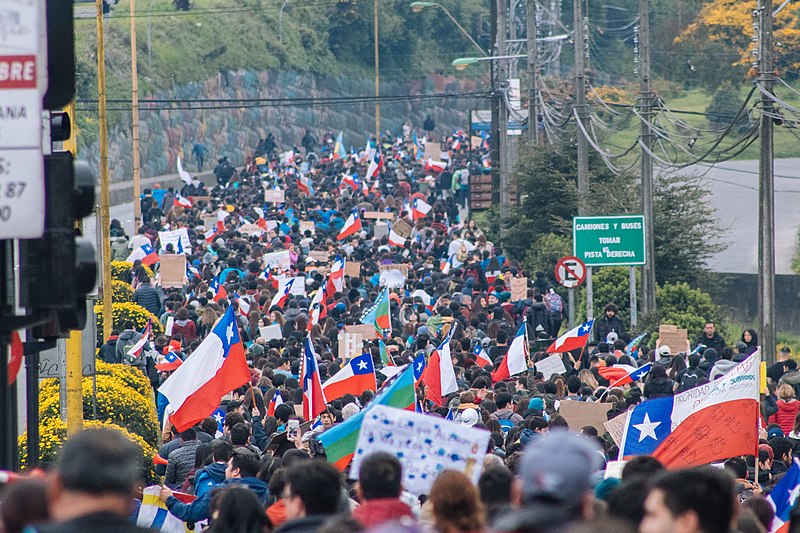 Demonstrators in Chile. (Wikimedia Commons)
Demonstrators in Chile. (Wikimedia Commons)
What follows is a conversation between journalist Ben Ehrenreich and Marc Steiner of The Real News Network. Read a transcript of their conversation below or watch the video at the bottom of the post.
MARC STEINER: Welcome to The Real News, folks. This is Marc Steiner. Good to have you with us.
Bob Dylan wrote a song many moons ago, and one of the lines went something like this: “Something is happening, but you don’t know what it is, do you?” And I won’t say the rest, but that song was called Ballad of a Thin Man. And we used to sing that song to the establishment back in the 60s when the world was being rocked by liberation movements and worldwide demonstrations. Now, from Colombia, to Hong Kong, to Haiti, Bolivia, Egypt, and Iran, and a dozen more countries, are exploding with demonstrations.
They’re not all erupting for the same reason, at least not the same obvious reason, but the underlying causes may be connected; from the failure of the neoliberal policies, to international finance rules that benefit the elite and the wealthy but leave the masses behind struggling in their wake, to capitalism’s inability to answer the social and then the economic needs of the people themselves. But given that, and how the right may support Hong Kong, but the left may decry the coup in Bolivia–though I might add this whole radical kind of supports both of them. But seriously, how do we connect those dots, understand what is going on in this planet and how these revolts may be confronting and defining the future for the 21st century.
Ben Ehrenreich wrestles with this in his latest article for The Nation called Welcome to the Global Rebellion Against Neoliberalism. And Ben, welcome. Good to have you with us.
BEN EHRENREICH: It’s good to be here, Marc.
MARC STEINER: And let me just add before we start that Ben’s most recent new book is The Way to the Spring, which is based on his reporting from the West Bank. And next July we’ll see his next book, Desert Notebooks: A Roadmap to the End of Time, which may be appropriate for this conversation. Maybe not.
Well Ben, good to have you here. But I think as you look first of all in a broader sense at these rebellions taking place across the globe–and we covered some of this when we covered Hong Kong. I had some people kind of writing on YouTube that they thought I was being too liberal in supporting and having these people–calling them socialists on the air, these people who were part of the Hong Kong demonstrations. And then other people getting upset because of the coup in Bolivia. And they seem really disparate in terms of their political underpinnings. But in some ways, all these things–from there, to Haiti, to the Sudan, to throughout the world–there’s a connection here that is really hard for most people to kind of put their hands around.
BEN EHRENREICH: Yeah. I think for a lot of them there is. And I’ve been grappling with this for a few weeks, as one after another country just sort of explodes into protest trying to figure out why this is happening now; what, if anything, they all have in common. Eventually, I just started making a list, and the list was long. I mean, as you said, it’s more than a dozen countries that are now in the last… since September have been thrown into turmoil by popular uprisings. Some of them started a lot earlier than that. Hong Kong did, and Haiti certainly did. And I started trying to make lists of what in each country set them off, and the commonalities quickly began to stand out. In most of them, whether it was a hike in a fuel tax or a hike in transit fare as in Chile that set them off, it was austerity policies of one kind or another that pushed people into the streets.
In other words, people are in all of these countries getting more and more squeezed, which means the daily life is harder. There is fewer and fewer social services available to them from the government and they see in pretty much all of these countries a corrupt, unaccountable elite, which is enriching itself while the lives of most people become more and more difficult.
And I think in most of these countries, this has been happening for some time. And there was some small spark like in Chile, the hike in transit fares that pushed a few people into the street and then many more people. And then of course governments tend to overreact to these things with considerable brutality. And that pushes even more people in the streets. And then within a few days you have a vast movement happening.
MARC STEINER: So I mean, when you look at these things… I mean, one of the things that I’ve been thinking about were these rebellions taking place, riots taking place, street demonstrations across the globe. To me, there’s a connection between that and the rise of the populist right. I’m not saying the populist right is behind the demonstrations at all. But the connection is, it seems to me–and I’d like to see what your thoughts on this–is the inability of this neoliberal capitalist world to answer the questions of people’s lives, so for people to survive. And I think that’s the connecting dots, but it’s being used politically across the spectrum and I think that’s what’s confusing people so much. How do you put your finger on it?
BEN EHRENREICH: Yeah. I mean, I think you’re right. I think in a lot of places, unfortunately the US being one of them, people have turned to nationalists and various kinds of ethnos chauvinist right-wing responses to some of the same challenges, right? That people are more and more shut out of their own societies. That people have a harder and harder time getting by. One case that was pretty interesting, I think, was France, which just marked it’s 12 month anniversary of the yellow vest protest, which of course were set off when Macron decided as a good green European centrist to try to discourage fossil fuel use by imposing a tax on fuel. Right? And he did this, everyone noticed, shortly after slashing taxes on the very rich.
So it was really clear that whatever transition was going to happen to agree in economy was going to happen on the backs of ordinary people. And this sent people out into the streets. Those protests were extremely tumultuous and have been long-lasting, and there’s been a lot of hair-pulling over what that means, I think among people on the left as well as the right… Because there have been far right elements, antisemitic elements out in those protests as well as folks on the left and the far left, and sometimes they’ve gotten along and sometimes they haven’t. But I think you’re right. I think the people on both sides of the spectrum are responding in different ways to increasing social insecurity.
MARC STEINER: Yeah. And it seems to me that one of the things you are wrestling with in your article which is really important I think for us to wrestle with in a much broader and deeper sense as well, is people can be so dismissive so quickly. What I was alluding to earlier was when I did a piece with socialist activists who were involved in the Hong Kong demonstrations, I get all these comments from YouTube saying, “You’re a tool of the Western governments. This is all being fomented by the United States deep state,” and all the rest. When no… for us to understand that these things were erupting because people have a deep discontent with their societies. And I think that it’s something that has not happened before like this, and people on the left especially are kind of grasping for how to define it and how to respond to it. I think that’s part of the dilemma most people are having. You haven’t seen very many articles like yours that are trying to connect the dots.
BEN EHRENREICH: Yeah, I don’t… The U.S. has been quite good historically at fomenting coups–
MARC STEINER: Absolutely.
BEN EHRENREICH: …At toppling governments in lots of different ways. What the U.S. has not been very good at is fomenting mass movements. Because for thousands and sometimes millions of people to come out day after day and risk their safety and risk their freedom, take something other than bribes from the U.S. Embassy… And so I have a hard time accepting that kind of analysis in a place like Hong Kong. I think that when there are mass protests like these and government’s reacting with extraordinary force, then no matter where you stand on the left, it is worth listening very carefully and not immediately assuming conspiracy intervention, et cetera, even if that is often the case in many countries around the world.
And from everything I’ve read and everything I understand about what’s happening in Hong Kong, Hong Kong is one of the most unequal cities in the world. It has some of the highest housing costs in the world, has some of the longest working hours in the world. So, in addition to the immediate demands of the protests in Hong Kong having to do with pulling the extradition bill, people are out there in the streets again and again, day after day because they are desperate, because their lives are completely out of their control. And I think one of the things that’s been really interesting, one of the commonalities: three of the places that have had these kinds of strongest and deepest protests have been Hong Kong, Chile and Lebanon; all countries with really long and deep histories of precisely this kind of neoliberal austerity and privatization. Of course, we know the history in Chile. There we did have a coup that the U.S. backed–
MARC STEINER: Absolutely.
BEN EHRENREICH: …And an experiment of several decades in neoliberalism backed by Pinochet’s death squads. And all of these are countries where not only have there been extreme forms of austerity and inequality, but in which space itself is more and more privatized. Beirut is just an incredibly privatized city. And from everything I’ve been reading about the protests there, one of the things that’s been most inspirational to people has been taking those spaces back and creating a kind of radical public that has not been able to exist there before. And I think that’s something anybody who’s spent time in the streets in protests knows that’s what happens. Radical forms of solidarity are built in the streets during protests. And I think these protest movements have been able to go much deeper in places where that kind of radical solidarity was so desperately needed.
MARC STEINER: If you look at some of these things that are happening–happening in Sudan, that are happening in Haiti and the Western European demonstrations–many of them are farmers who want to be able to use the chemicals they want on their land and don’t want to be told what to do. And that’s part of their push as well. And you have all the other ones we’ve talked about and the ones we have not talked about, India and Iran and other places. So when you look at this, just before we close, what I said in the last part of my opening is that in some ways these rebellions and demonstrations around the world could be defining what a struggle looks like in the 21st century for a new kind of world. So how do you begin to connect those dots? Where do you see the commonality and where do you see the contradictions?
BEN EHRENREICH: Really the contradictions are still quite large. And I think it’s pretty hard to convince a protestor in Ecuador or in Bolivia that they have a lot in common with a French or a Dutch farmer. But I think once you start looking beyond national boundaries, it becomes clear that in all of these places people are rebelling against the world that we live in now, which is one in which we have these absolutely corrupt and venal elites controlling society after society with really no challenges. I mean, in our own country–within the U.S. of course–we’ve had like two centrist parties battling it out for years and without any fundamental challenges to the momentum
that our society is going in, and this is true in many other places as well.
And I think the challenge looking forward–and this is made more and more acute by climate change, which of course does not respect orders–the challenge is going to be putting these struggles together and forming kinds of solidarity that are both uncomfortable and are new to us; that look beyond national borders to what we all have in common, what we need to do together if we’re going to make the kind of changes we need in our lives.
MARC STEINER: Well, Ben, there’s so much more I want to talk about with you. But we’ll do it over a period of time here and kind of look at this in some greater depth. Appreciate the piece you just wrote, Global Rebellion Against Neoliberalism that appeared in The Nation, and the other work you’re writing. Ben, thank you so much for taking your time today and we’ll talk soon.
BEN EHRENREICH: Thanks so much, Marc. Would be a pleasure to come back.
MARC STEINER: My pleasure. And I’m Marc Steiner here for The Real News Network. Thank you all for joining us. Please let us know what you think. We’ve got to get this dialogue going together. Take care.
Your support matters…
Independent journalism is under threat and overshadowed by heavily funded mainstream media.
You can help level the playing field. Become a member.
Your tax-deductible contribution keeps us digging beneath the headlines to give you thought-provoking, investigative reporting and analysis that unearths what's really happening- without compromise.
Give today to support our courageous, independent journalists.
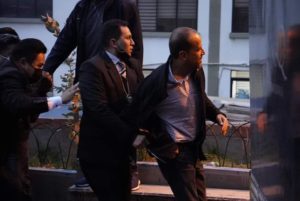

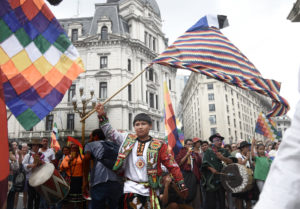
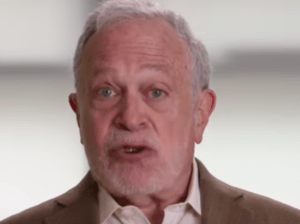
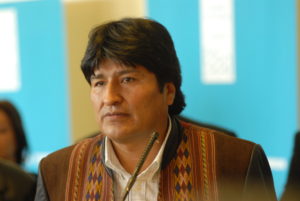
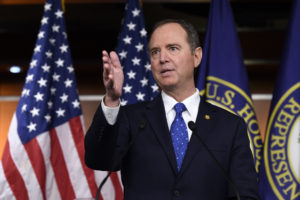
You need to be a supporter to comment.
There are currently no responses to this article.
Be the first to respond.